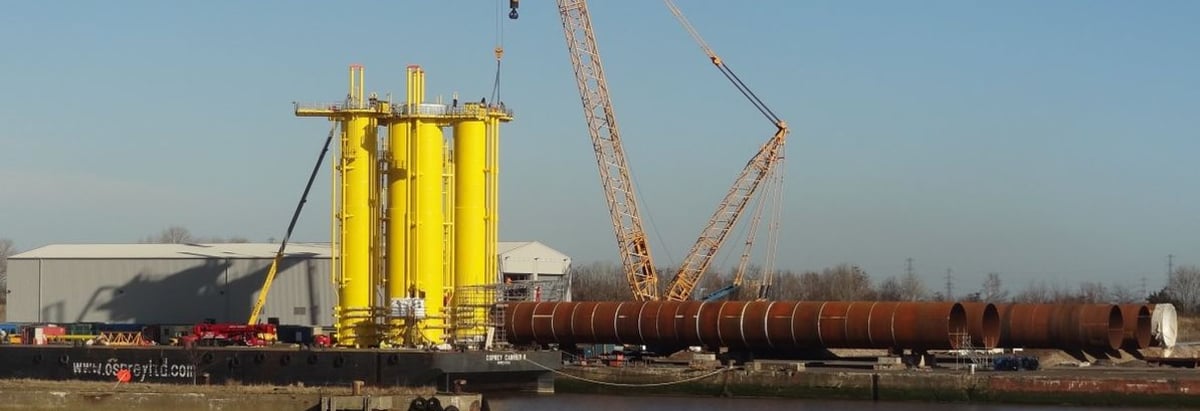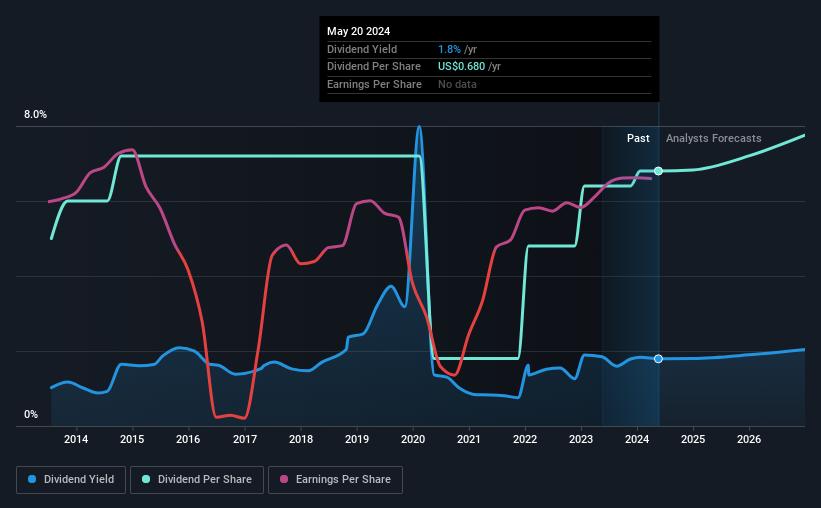
Halliburton Company (NYSE:HAL) will pay a dividend of $0.17 on the 26th of June. Although the dividend is now higher, the yield is only 1.8%, which is below the industry average.
View our latest analysis for Halliburton
Halliburton's Dividend Is Well Covered By Earnings
Even a low dividend yield can be attractive if it is sustained for years on end. However, Halliburton's earnings easily cover the dividend. This means that most of its earnings are being retained to grow the business.
Over the next year, EPS is forecast to expand by 43.8%. If the dividend continues on this path, the payout ratio could be 15% by next year, which we think can be pretty sustainable going forward.

Dividend Volatility
While the company has been paying a dividend for a long time, it has cut the dividend at least once in the last 10 years. Since 2014, the dividend has gone from $0.50 total annually to $0.68. This works out to be a compound annual growth rate (CAGR) of approximately 3.1% a year over that time. Modest growth in the dividend is good to see, but we think this is offset by historical cuts to the payments. It is hard to live on a dividend income if the company's earnings are not consistent.
The Dividend Has Growth Potential
With a relatively unstable dividend, it's even more important to see if earnings per share is growing. Halliburton has impressed us by growing EPS at 7.8% per year over the past five years. Halliburton definitely has the potential to grow its dividend in the future with earnings on an uptrend and a low payout ratio.
Our Thoughts On Halliburton's Dividend
Overall, it's great to see the dividend being raised and that it is still in a sustainable range. The payout ratio looks good, but unfortunately the company's dividend track record isn't stellar. Taking all of this into consideration, the dividend looks viable moving forward, but investors should be mindful that the company has pushed the boundaries of sustainability in the past and may do so again.
Investors generally tend to favour companies with a consistent, stable dividend policy as opposed to those operating an irregular one. However, there are other things to consider for investors when analysing stock performance. For example, we've picked out 2 warning signs for Halliburton that investors should know about before committing capital to this stock. If you are a dividend investor, you might also want to look at our curated list of high yield dividend stocks.
Valuation is complex, but we're here to simplify it.
Discover if Halliburton might be undervalued or overvalued with our detailed analysis, featuring fair value estimates, potential risks, dividends, insider trades, and its financial condition.
Access Free AnalysisHave feedback on this article? Concerned about the content? Get in touch with us directly. Alternatively, email editorial-team (at) simplywallst.com.
This article by Simply Wall St is general in nature. We provide commentary based on historical data and analyst forecasts only using an unbiased methodology and our articles are not intended to be financial advice. It does not constitute a recommendation to buy or sell any stock, and does not take account of your objectives, or your financial situation. We aim to bring you long-term focused analysis driven by fundamental data. Note that our analysis may not factor in the latest price-sensitive company announcements or qualitative material. Simply Wall St has no position in any stocks mentioned.
About NYSE:HAL
Halliburton
Provides products and services to the energy industry worldwide.
Very undervalued with excellent balance sheet and pays a dividend.
Similar Companies
Market Insights
Community Narratives


